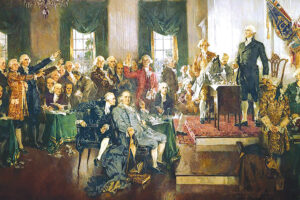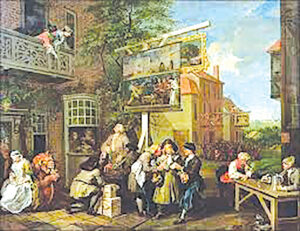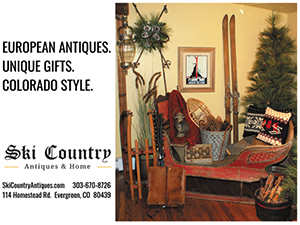 By Evan Andrews
By Evan Andrews Why Is Election Day a Tuesday in November? The answer lies with America’s 19th-century farmers. Americans first began the custom of weekday voting in 1845, when Congress passed a federal law designating the first Tuesday following the first Monday in November as Election Day.
But why a Tuesday in November? The answer stems from the agrarian makeup of 19th-century America. In the 1800s, most citizens worked as farmers and lived far from their polling place. Since people often traveled at least a day to vote, lawmakers needed to allow a two-day window for Election Day. Weekends were impractical, since most people spent Sundays in church, and Wednesday was market day for farmers.
With this in mind, Tuesday was selected as the first and most convenient day of the week to hold elections. Farm culture also explains why Election Day always falls in November. Spring and early summer elections were thought to interfere with the planting season, and late summer and early fall elections overlapped with the harvest. That left the late fall month of November—after the harvest was complete, but before the arrival of harsh winter weather—as the best choice.
Before then, states were allowed to hold elections any time they pleased within a 34-day period before the first Wednesday in December, but this system had a few crucial flaws. Knowing the early voting results could affect turnout and sway opinion in states that held late elections, and those same last-minute voters could potentially decide the outcome of the entire election. Faced with these issues, Congress created the current Election Day in the hope of streamlining the voting process.
 Elections in Colonial America Were Huge, Booze-Fueled Parties
Elections in Colonial America Were Huge, Booze-Fueled Parties From rum to cakes to rowdy parades, election day was a time for gathering and celebration.
Voters for the Virginia House of Burgesses in 1758 had their choice of candidates. And one of them—a wealthy planter who had made his name in the French and Indian War—gave them their choice of alcohol, too. Candidate George Washington plied potential voters with 47 gallons of beer, 35 gallons of wine, 2 gallons of cider, 3 1/2 pints of brandy and a whopping 70 gallons of rum punch. He carried the election with 310 votes.
The future president wasn’t the only candidate who knew how to grease the wheels of the colonial electorate—and his voters weren’t the only colonists who knew how to party on election day. In the days before the American Revolution, colonial elections were festive, even rowdy occasions. Elections were a chance to weigh in on important business, but they were also an opportunity to let loose and party.
Colonists didn’t have as much leeway to choose their elected officials as U.S. citizens do today. But those who could vote—wealthy, landholding Protestant men, for the most part—did so in a much more intimate fashion than modern voters. Voting happened in person, and didn’t always involve a ballot. Rather, men would travel from near and far to participate in voice votes affirming candidates for town and city governments, colonial legislatures and, in some colonies, governors.
It was a time before campaign finance as we know it, and campaigns happened in person or by letter. Rich, landed voters might receive individual visits from the rich, landed men who could afford to run for office.
For less wealthy voters, though, the action was on election day itself. “Prospective officeholders were expected to be at the polls on election day and made a point to greet all voters. Failure to appear or to be civil to all could be disastrous,” writes Ed Crews.
In New York, for example, candidates and their supporters rented out taverns and held huge, boozy parties. Often, candidates would take care of transportation, too—and the trips toward the polling place often took on the trappings of a rowdy parade complete with brawls, taunts and delighted onlookers.
The parades were impromptu affairs that reflected the nature of colonial life. Colonial assembly elections brought men from near and far, but also attracted family members, who traveled with them to the colonial capital to see the festivities. As they moved, the parades became jocular and increasingly spirited affairs that were egged on by onlookers eager to greet their far-flung friends, get the latest news and watch the election itself.
As voters moved toward the election green in New York City in 1768, writes historian Nicholas Varga, candidates and their supporters “coaxed and bullied each voter as he strode to the poll.” All this cheering and shouting seemed to add to the festive occasion. After the vote, the celebrations kept on going. “It was customary for everyone present to adjourn to the nearest tavern where the winning candidate was expected to treat all the electors (regardless of how they had voted) to more drink and food,” he writes.
Elections were so festive that they even called for special food. Election cake—a massive loaf of sweet bread with raisins, figs and spices—was common throughout the colonies from the 1660s on. The delicacy eventually became particularly associated with Hartford, where town representatives provided it to voters who came to the colonial capital from afar.
Elections weren’t always as festive: Occasionally, they became dangerous. In 1742, for example, a scuffle in Philadelphia escalated into an outright riot. Quaker politicians had long dominated the city’s political scene, but a growing group of Anglican politicians threatened their dominance in city government. Amidst rumors that the Quakers had recruited unnaturalized Germans to vote for them, a group of rowdy, pro-Anglican sailors descended on the courthouse. Violence ensued, and the fiasco became known as the city’s “Bloody Election.” (The Quakers prevailed.)
The election day festival tradition continued after the formation of the United States and throughout the 19th century. At its height, an estimated 85 percent of the U.S. electorate turned out to vote. However, there were legions of Americans who could not vote, including Native Americans, some immigrants, women and black Americans whose voting rights were challenged and stripped from them after Reconstruction. Today, we can all vote.
There are renewed calls to make election day more festive—or at least a national holiday on which more people can exercise their civic duty and vote. “Declaring Election Day a federal holiday and rekindling the celebratory spirit that marked the day in previous centuries would be an important step toward promoting democratic participation,” writes historian Holly Jackson for the Washington Post.
The idea has been proven successful: In 2007, political scientists were able to use election-day celebrations to drive voter turnout.
Election Day may never again be soaked in rum and filled with brawling, drunken parades, but Jackson and others argue that revisiting some elements of colonial election day traditions could boost voter turnout. Election Day is a civic holiday in several states including Delaware, Hawaii, New York, New Jersey and the territory of Puerto Rico. Many have called for Election Day to become a federal holiday, so people can take time to vote without missing work.















Follow Us